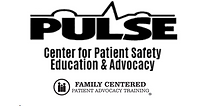
Ask For Your Life
Promoting Racial Equality in Health Care
Everyone has the right to safe, quality healthcare that is free from discrimination. You have the right to ask questions and make decisions about your care and you have the right to have a support person, or patient advocate, of your choice.

Our Mission: Promoting racial equality in healthcare through a health literacy and patient empowerment program for the Black Community - individuals and families.
Our Vision: For all African Americans to be informed, involved and active participants in their healthcare.
THE ASK FOR YOUR LIFE CAMPAIGN
YOUR HEALTH & YOUR LIFE
African American women are dying 3 to 4 times more often than white women during and after pregnancy. Infant mortality is twice as high. The breast cancer death rate is higher for black women even though they get about the same number of mammograms as white women. In all areas of medical care outcomes are worse for African-Americans. Rich or poor, educated or not, insured and uninsured – inequality in healthcare for people of color affects all walks of life.
WHY?
Since the time of slavery to the present day, racial bias and stereotypes persist in the minds of most Americans. Healthcare professionals are not immune to the effects of subconscious bias on their thinking and behavior even though they are not consciously racist. For decades medical research has shown how the health of African Americans continues to be affected by racial discrimination. It’s time now for patients and their families to seek equality in healthcare.
PATIENT’S RIGHTS
Everyone has the right to safe, quality healthcare that is free from discrimination. We are all entitled to courtesy and respect, to privacy, to be listened to, to ask questions and to have our questions answered so that we understand all information that we need to make decisions about our care and treatment. Patients also have the right to have a support person, or patient advocate, of their choice to help with navigating the healthcare system and preventing errors in their care. In addition, there are laws governing access to medical records, and most hospitals post a Patient’s Bill of Rights.
WHAT CAN THE PATIENT & FAMILY DO?
-
With the Doctor or Nurse – talk Person to Person!
-
Start off with a friendly greeting, making eye contact, to be sure you connect on a person to person level from the beginning.
-
Come to the visit prepared to share your health concerns and information about your health – Make a list, Bring it with you.
-
Answer questions as honestly and completely as you can – If the healthcare provider does not have accurate information the incorrect problem may be diagnosed and the wrong treatment or testing may be recommended.
-
Learn about your condition. Ask your healthcare provider to give written reading material. If you use the web make sure it’s a reliable site. Don’t just Google for information.
-
If a problem is found, and tests or treatments are discussed, make sure you understand the plan. Let the healthcare provider know you want to do “Teach Back”. Then tell them what you heard them say to make sure you got it right. You might not agree or understand their recommendations. They may need to explain more than once.
-
If there are many interruptions, very little eye contact, rushing through the visit, reluctance to answer questions, or any other signs of disrespect or lack of concern for your comfort and well-being – Speak up. Tell your provider about your concern respectfully. For example: “Doc, you must be very busy today – Do you have time to help me so I can get better?”
-
If communication with members of your healthcare team is not clear or caring, and speaking up about it does not resolve the problem, then it is important for your health, and may even be life-saving, to find another healthcare provider. Ask friends and family who they see, and what are the good qualities about their provider and their office or clinic or hospital.
Finally:
ASK for Your Life
-
Ask questions until you understand the answers
-
Speak up if something’s not right
-
Know your body, your conditions, your medications and test results
The ASK for Your Life Campaign is an educational program of the Healthcare Equality Project of the Pulse Center for Patient Safety Education and Advocacy (CPSEA)
Contact us at info@Pulsecpsea.org




